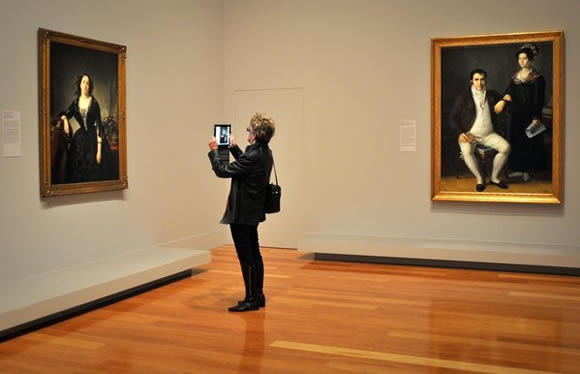Apple may not have the highest market share across the board when it comes to the smartphone market, but they do VERY well in one important demographic… Rich people.

According to a new report, when it comes to users whose net worth is more than $100,000, the Cupertino, Calif., company’s iPhone and iPad remain the phone and tablet of choice, respectively. And for the most part, Apple’s market share only increases the higher up the asset scale you look, according to the report from Spectrem Group, a research firm that specializes in the affluent and retirement markets.
In a category that Spectrem, (yes, that IS how they spell it), calls “mass affluent investors,” (those whose net worth exceeds $100,000 excluding their primary residence), 46% own an iPhone. Android comes in at 34%. In the tablet arena, which Apple owns across the board, the iPad is the tablet of choice for 53% of the group, second place is taken by the Kindle Fire with only 16%.
When you raise the stakes to $1 million, the iPhones share inches up to 48% of the market, while the Android goes down a percentage point. The iPad makes a very nice showing in this arena, with 61% of the market, while the Fir drops a percentage point.
What about $5 million in net worth you ask? iPhone grabs a whopping 59% share, while the Android phones drop down to 25%. The iPad doesn’t fare as well, as its share drops to 57%, the Kindle Fire doesn’t gain any ground though, as it’s share drops by more than half, down to 7%, where it is tied with the Nook with Internet.
Spectrem Group gathered the info in a little survey they like to call, “Use of Mobile Technology, Tablets, Online Tools and Social Media Vol. II.” (WHEW!)
Catherine McBreen, Spectrem Group’s managing director, said wealthy investors probably lean toward Apple for two main reason: their age, and their wealth.
Most wealthy people are older, and don’t like to jump around from gadget to gadget. They find something they like, and they stick with it.
“Once they have a product they like and are comfortable with, they’re unlikely to switch out,” she said. “They tend to be older, so they’re not looking for the newest feature.”
And the reason they like Apple so much is that, for the most part, it gets its products out before its competitors.
True, the iPhone wasn’t the first smartphone, but it was the first true touchscreen smartphone, and the first to have an app store. Android seems to always be playing catch-up, releasing multiple devices every year.
The iPad has such a firm grip in the tablet market is because since the release of the iPad over two years ago, no true competitor has, as of yet, emerged.


